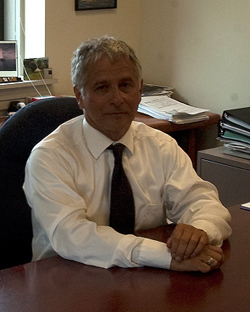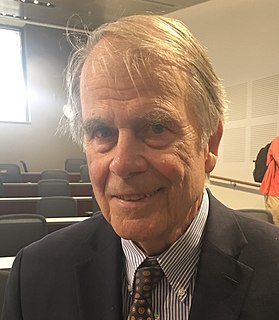Related Research Articles

The False Claims Act (FCA), also called the "Lincoln Law", is an American federal law that imposes liability on persons and companies who defraud governmental programs. It is the federal government's primary litigation tool in combating fraud against the government. The law includes a qui tam provision that allows people who are not affiliated with the government, called "relators" under the law, to file actions on behalf of the government. This is informally called "whistleblowing", especially when the relator is employed by the organization accused in the suit. Persons filing actions under the Act stand to receive a portion of any recovered damages.
In law, standing or locus standi is a condition that a party seeking a legal remedy must show they have, by demonstrating to the court, sufficient connection to and harm from the law or action challenged to support that party's participation in the case. A party has standing in the following situations:

The Supreme Court of California is the highest and final court of appeals in the courts of the U.S. state of California. It is headquartered in San Francisco at the Earl Warren Building, but it regularly holds sessions in Los Angeles and Sacramento. Its decisions are binding on all other California state courts. Since 1850, the court has issued many influential decisions in a variety of areas including torts, property, civil and constitutional rights, and criminal law.

The Supreme Court of Ireland is the highest judicial authority in Ireland. It is a court of final appeal and exercises, in conjunction with the Court of Appeal and the High Court, judicial review over Acts of the Oireachtas. The Supreme Court also has appellate jurisdiction to ensure compliance with the Constitution of Ireland by governmental bodies and private citizens. It sits in the Four Courts in Dublin.
In Canadian law, a reference question or reference case is a submission by the federal or a provincial government to the courts asking for an advisory opinion on a major legal issue. Typically the question concerns the constitutionality of legislation.
Section 7 of the Canadian Charter of Rights and Freedoms is a constitutional provision that protects an individual's autonomy and personal legal rights from actions of the government in Canada. There are three types of protection within the section: the right to life, liberty and security of the person. Denials of these rights are constitutional only if the denials do not breach what is referred to as fundamental justice.

Freedom of religion in Canada is a constitutionally protected right, allowing believers the freedom to assemble and worship without limitation or interference.

Canada (AG) v Lavell, [1974] S.C.R. 1349, was a landmark 5–4 Supreme Court of Canada decision holding that Section 12(1)(b) of the Indian Act did not violate the respondents' right to "equality before the law" under Section 1 (b) of the Canadian Bill of Rights. The two respondents, Lavell and Bédard, had alleged that the impugned section was discriminatory under the Canadian Bill of Rights by virtue of the fact that it deprived Indian women of their status for marrying a non-Indian, but not Indian men.

The Privacy Act is the federal information-privacy legislation of Canada that came into effect on July 1, 1983. Administered by the Privacy Commissioner of Canada, the Act sets out rules for how institutions of the Government of Canada collect, use, disclose, retain, and dispose of personal information of individuals.

Chippewas of Sarnia Band v Canada (AG), 2000 CanLII 16991, 51 OR (3d) 641; 195 DLR (4th) 135 was a decision of the Court of Appeal for Ontario concerning aboriginal title in Canada.
The passage of the Canadian Charter of Rights and Freedoms in 1982 allowed for the provision of challenging the constitutionality of laws governing prostitution law in Canada in addition to interpretative case law. Other legal proceedings have dealt with ultra vires issues. In 2013, three provisions of the current law were overturned by the Supreme Court of Canada, with a twelve-month stay of effect. In June 2014, the Government introduced amending legislation in response.

Canada (AG) v Bedford, 2013 SCC 72, [2013] 3 SCR 1101 is a decision of the Supreme Court of Canada on the Canadian law of sex work. The applicants, Terri-Jean Bedford, Amy Lebovitch and Valerie Scott, argued that Canada's prostitution laws were unconstitutional. The Criminal Code included a number of provisions, such as outlawing public communication for the purposes of prostitution, operating a bawdy house or living off of the avails of prostitution, even though prostitution itself is legal.

Joseph James Arvay, was a Canadian lawyer who argued numerous landmark cases involving civil liberties and constitutional rights.
Michael Moldaver is a Canadian judge. He has been a puisne justice on the Supreme Court of Canada since his 2011 appointment by former Prime Minister Stephen Harper. Before his elevation to the nation's top court, he served as a judge at the Ontario Superior Court of Justice and the Court of Appeal for Ontario for over 20 years. A former criminal lawyer, Moldaver is considered an expert in both Canadian criminal law and the Canadian Charter of Rights and Freedoms.

Teva Canada Ltd v Pfizer Canada Inc, 2012 SCC 60 is a leading Supreme Court of Canada decision on the disclosure requirements for a patent in Canada.

Robert Patrick Armstrong is a Canadian lawyer and retired judge. He served on the Court of Appeal for Ontario from 2002 until his retirement in 2013. Before serving on the bench, Armstrong was a partner at Torys and was lead counsel in the Dubin Inquiry on steroid use in Canadian sports. After leaving the bench, Armstrong joined Arbitration Place, a Canadian group specializing in alternative dispute resolution.
The open court principle requires that court proceedings presumptively be open and accessible to the public and to the media.
References
- ↑ "Supreme Court of Canada - Decisions - Judgments in Leave Applications". Archived from the original on 2012-07-15. Retrieved 2011-12-05.